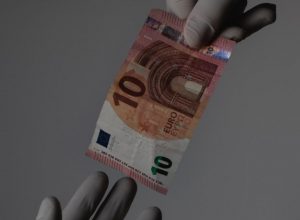
A key industry group for farmers and processors in Europe wants EU policymakers to see industrial hemp as a potential catalyst for regenerating rural areas following the coronavirus economic downturn.
In a manifesto released on Tuesday, the European Industrial Hemp Association said the crop could deliver long-term sustainable growth and create jobs across EU rural economies as Europe and the rest of the world tries to navigate the long road to economic recovery.
“The world has been turned upside down, and after COVID-19 we are looking at rebuilding the economy,” Lorenza Romanese, EIHA managing director, told Hemp Industry Daily. “We truly believe that hemp has a valuable contribution to play and that is why this manifesto comes at such an important time.”
Because the industrial hemp sector takes a sustainable approach to agriculture and focuses on the multiple applications as food and manufactured products, the hemp sector could help revamp the economies of rural areas, the EIHA said.
The manifesto offers 10 proposals for EU lawmakers and policymakers to consider:
- Public policies should promote hemp use in food, animal feed and manufactured products and finance the development of sustainable value chains.
- The contribution to the environment of the hemp plant should be recognized and the use of hemp for carbon farming encouraged.
- EU member states should not apply the drug control legislations to hemp and its derived products, as long as the limits established for THC content are respected.
- The maximum THC level allowed in the field should be raised to 0.3%.
- Operators should be allowed to harvest from all parts of the plant, including flowers and leaves, and market any kind of product, while maintaining compliance with the THC content limits.
- Hemp and hemp preparations (such as extracts) containing naturally occurring cannabinoid content should not be considered as novel food.
- Reasonable guidance values for THC in food and animal feed should be established. (The EIHA said the risk evaluation and guidance provided by the European Food Safety Agency and by the German Federal Institute for Risk Assessment on THC intake through hemp-containing foods do not meet scientific standards, are outdated and unnecessarily strict and should be revised.)
- All hemp-derived raw materials should be permitted as ingredients for cosmetics.
- The EU should value and promote the use of hemp fibers for the production of short and long fiber for textiles and favor the establishment of sustainable value chains.
- The use of hemp-based construction and other materials should be incentivized both in public and private sectors, with clear goals for the total or partial substitution of other less sustainable alternatives.
Monica Raymunt can be reached at [email protected]

